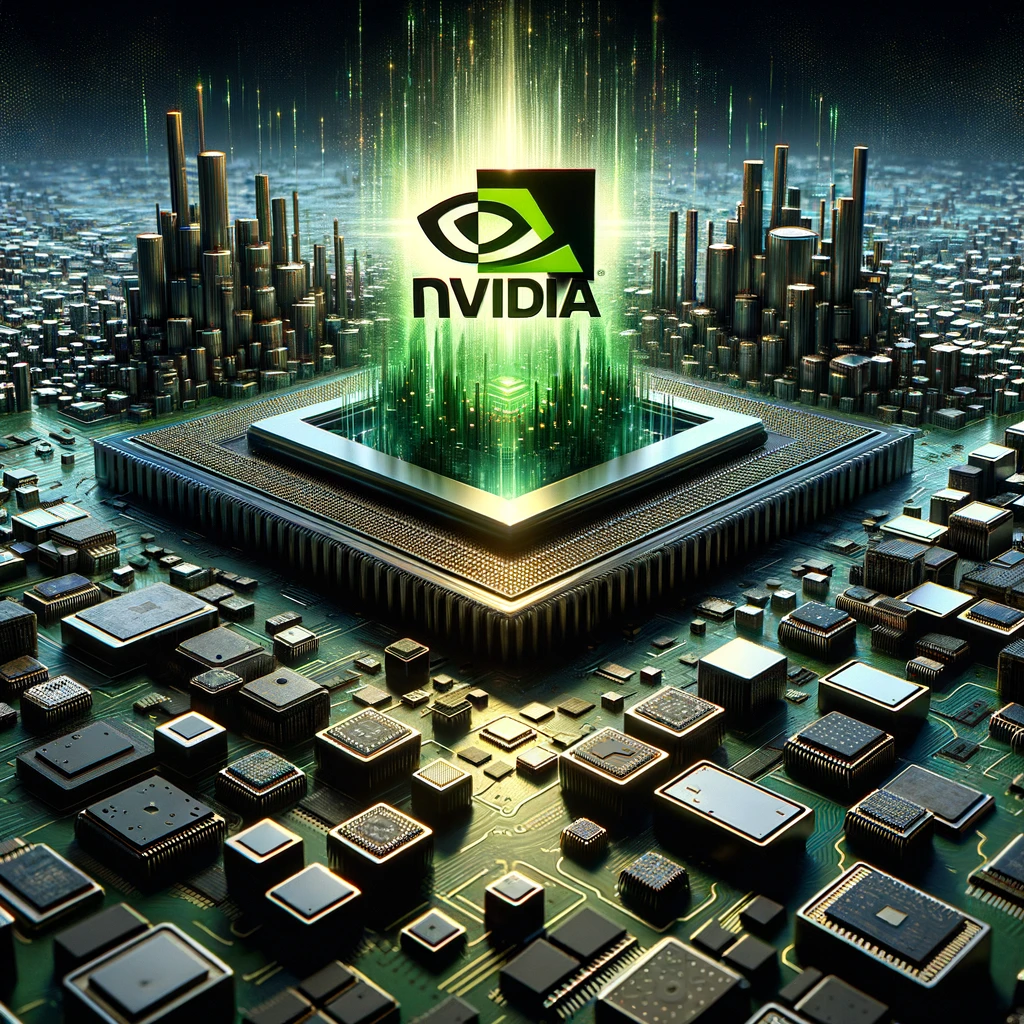Nvidia, a leader in the artificial intelligence (AI) chip market, is venturing into a new business unit dedicated to designing custom chips for cloud computing, telecommunications, automotive, and video gaming sectors. This move aims to capture a share of the burgeoning custom AI chip market and defend against the increasing competition in its domain.
The Santa Clara, California-based tech giant, which currently dominates approximately 80% of the high-end AI chip market, has seen its stock market value soar by 40% this year, reaching $1.73 trillion. This growth comes on the heels of more than tripling in value in 2023, highlighting the company’s strong position in the rapidly evolving generative AI sector.
Strategic shift towards customization
Nvidia’s new focus on custom chip design represents a strategic shift aimed at meeting the specific needs of major tech companies like OpenAI, Microsoft, Alphabet, and Meta Platforms. These companies have been Nvidia’s customers for its H100 and A100 chips, general-purpose AI processors that are now facing potential shortages due to high demand. The shift towards custom chips is driven by the need for more energy-efficient and cost-effective solutions tailored to specific applications.
The custom chip market, according to research from 650 Group, is expected to grow to $10 billion in 2024 and double by 2025, within a broader market valued at approximately $30 billion in 2023. This market expansion presents a significant opportunity for Nvidia to diversify its offerings and solidify its leadership in the AI technology space.
Nvidia’s initiative involves collaboration with giants such as Amazon.com, Meta, Microsoft, Google, and OpenAI, to develop bespoke chips that could revolutionize data center operations, telecom infrastructure, automotive technology, and gaming consoles. This collaborative approach also opens new revenue streams for Nvidia, while potentially reducing the reliance of these companies on other suppliers like Broadcom and Marvell Technology.
Impact on the industry and competition
Nvidia’s entry into the custom chip design market poses a direct challenge to established players like Broadcom and Marvell, which have been leading the custom silicon design for data centers. With Nvidia’s extensive intellectual property and technological capabilities, it is poised to disrupt the existing market dynamics and capture a significant market share.
The move is not just about capturing new markets but also about innovating in response to the evolving needs of Nvidia’s clients. Custom chips offer the possibility of optimized performance for specific tasks, which is increasingly important as companies seek to advance their AI capabilities while managing costs and energy consumption.
Nvidia’s strategy extends beyond AI and data centers, targeting the telecom sector with potential collaboration with Ericsson, the automotive industry, and the video game market. The anticipated growth in these sectors underscores the vast potential for Nvidia’s custom chip designs, promising a new era of specialized computing solutions across industries.
Nvidia’s pivot to custom chip design underscores the company’s commitment to innovation and its vision for the future of computing. By tapping into the $30 billion custom chip market, Nvidia is not only expanding its business model but also contributing to the technological advancements in AI and beyond. As the custom chip market continues to grow, Nvidia’s strategic investments and collaborations are set to redefine the landscape of computing, telecommunications, automotive technology, and gaming.
Land a High-Paying Web3 Job in 90 Days: The Ultimate Roadmap
